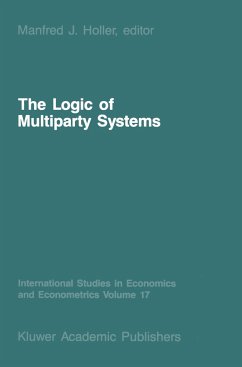
An Analysis of Legislative Instruments in the European Union
from the liberal intergovernmentalist perspective
Versandkostenfrei!
Versandfertig in 6-10 Tagen
32,99 €
inkl. MwSt.

PAYBACK Punkte
16 °P sammeln!
Argument of the evolution of the EU integration towards a supranational end and in contrast claim of continuing member states control on conclusions both handle institutional reforms as means for their interpretation of EU integration. One side asserts that each development through supranationalism leads to the decrease in the member states autonomy and capabilities, whereas the other approach advocates that these developments would be the consequence of the aim of member states to achieve a higher benefit without compromising more. By depending on their commonality, this research focuses on t...
Argument of the evolution of the EU integration towards a supranational end and in contrast claim of continuing member states control on conclusions both handle institutional reforms as means for their interpretation of EU integration. One side asserts that each development through supranationalism leads to the decrease in the member states autonomy and capabilities, whereas the other approach advocates that these developments would be the consequence of the aim of member states to achieve a higher benefit without compromising more. By depending on their commonality, this research focuses on these legislative instruments to clarify the current positions and roles of member states in decision-making process. As a result, lack of such restrictions in legislation of EU verifies the continuing autonomy and competence of national governments and determines the international bargaining and in relation relative power of member states as assisting factors of their ongoing authority, rather than restrictions.












